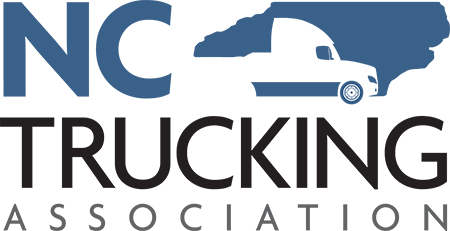
NATMI: CSS & CDS Fleet Safety Certification
Monday, June 20, 2022 8:00 AM - Friday, June 24, 2022 5:00 PM (EDT)
Description
North Carolina Trucking Association
Presents:
NATMI CSS & CDS FLEET SAFETY CERTIFICATION
June 20-24, 2022
Motor Fleet Safety Basics - June 20-21, 2022
Managing Motor Fleet Safety Programs - June 22-23, 2022
Certification Exam - June 24, 2022
VIRTUAL COURSE
(Please register early, if possible)
Want to become certified? The courses below are applicable toward NATMI’s nationally recognized, university accredited certification programs. Taking the courses is the first step toward earning a credential that will help you become a more competent professional, earn industry recognition and credibility in court testimony. If you have the job experience, you can pay one lump sum that covers all fees for certification and complete the process within a 60-day time frame – or less. How to Become Certified - Certified Director of Safety (CDS): 5 Years (or 4 years if you have a college degree) in fleet safety management
Fees for Professional Certification Applicants: All-inclusive tuition for Accelerated Certification School Program (includes both course fees, NATMI membership fee, certification kit and certification application fee): $1,295 (4 days of classroom training) Courses taken by themselves are each $480 members or $580 Non-members Both courses taken together $880 members /$1080 non-members
| ||||||||||||||
Motor Fleet Safety Basics course benefits (2 Days classroom):
After this course, participants will be able to: 1. Recognize the role of the safety supervisor in implementing quality fleet safety programs. 2. Implement record keeping systems to meet DOT and OSHA regulatory requirements. 3. Conduct basic on-site accident investigations and compile accident reports. 4. Implement procedures to prevent employee injury and control workers’ compensation claims. 5. Apply strategies to hire successfully. 6. Identify and implement strategies to improve driver retention. 7. Identify safety-related training needs and deliver effective safety training programs. 8. Describe the benefits and requirements for becoming a NATMI certified safety professional.
Course Description: This “Fleet Safety 101” program is designed to provide training on effective implementation of safety-related policies and procedures. A training requirement for NATMI’s safety certification program, this course is designed for line-level safety supervisors, with the basic emphasis on what they need to do and when and how to do it. Managers of small fleets and experienced safety professionals seeking a refresher on technical issues will find this course helpful as well. You’ll gain technical knowledge taught within the context of the importance of safety and applying a quality management approach to safety program implementation. Some pre-reading is also required. The following topics will be covered:
| Managing Motor Fleet Safety Programs course benefits (2 Days Classroom):
After this course, participants will be able to: 1. Establish safety policy and procedures. 2. Apply quality management principles and tools to safety management. 3. Develop measurement standards and control systems for fleet safety. 4. Analyze company records to quantify the Return on Investment of safety programs. 5. Evaluate critical data in each technical program area covered in this course. 6. Make recommendations to establish and continuously improve safety programs. 7. Act as an advocate for safety in their company. 8. Create a company safety culture and “sell” upper management on the safety philosophy. Course Description: This course is designed to provide transportation safety directors and prospective safety directors with the vision and skills that they need to manage an effective safety program. Participants will be playing the role of a newly-hired safety director at a company in need of a safety overhaul. Through case-based scenarios, learn how to “sell” safety to top management, foster a safety “culture” in the organization, demonstrate safety’s Return on Investment, and consistently improve the safety of company operations using quality management approaches. The following topics will be covered:
|
Safety
Continuing Education
NATMI
